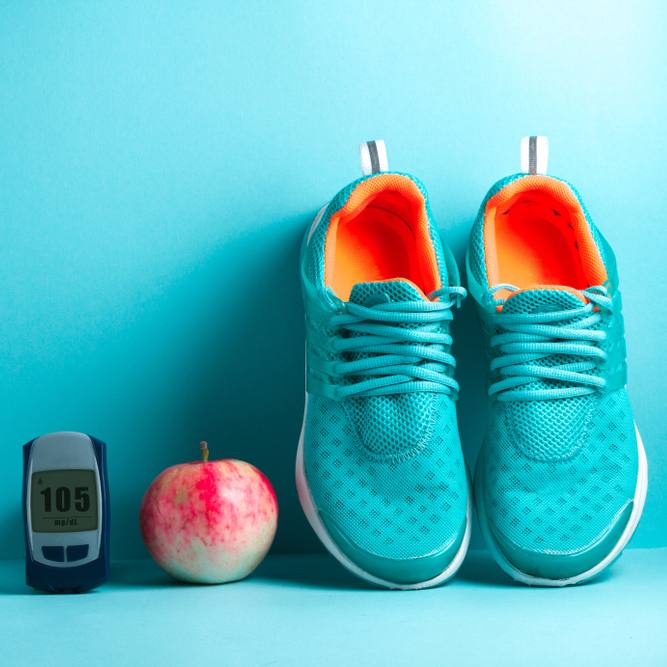-
Many Options, but No Single Path to Managing Irritable Bowel Syndrome
Many Options, but No Single Path to Managing Irritable Bowel Syndrome
February 19, 2010
Dear Mayo Clinic:
I have had irritable bowel syndrome (IBS) for many years. My problem is not that I have diarrhea or constipation, but that I have bowel movements often — sometimes four to eight times a day. Usually, I have cramps from the foods I eat, bland or otherwise. At the moment I am on Librax, a medication to reduce stomach spasms, which I take when needed. Is there anything else I can do?
Answer:
With irritable bowel syndrome (IBS), there are many options to manage symptoms — but, unfortunately, no single best approach that will work for everyone. You'll need to experiment to determine what might work better than your current strategy. For most people, diet and lifestyle changes can reduce troublesome symptoms. Other medication options might provide relief, too.
Irritable bowel syndrome is a common disorder of the large intestine, affecting as many as one in five adults. The cause isn't known, and symptoms vary. People with IBS might experience gas, diarrhea or constipation (sometimes alternating), or perhaps a feeling that they can't empty their bowels completely or bloating.
Symptoms might be uncomfortable, painful and, for some, severe enough to interfere with work and daily activities. Despite the symptoms, IBS does not cause permanent damage to the intestine.
Keep in mind the following to help manage the symptoms associated with IBS:
Diet: First and foremost, we know that diet affects IBS symptoms. Start with a healthy, well-balanced diet. I don't recommend extreme elimination diets. That said, certain foods and drinks deserve some caution, including sugary drinks, sugar-free gums and candies, and anything with caffeine, particularly when consumed in greater than modest amounts. Any of these may worsen IBS symptoms for some individuals.
Other food triggers may not be so obvious. After a person eats a troublesome food, symptoms may not appear for hours to an entire day. The length of the delay is related to individual anatomy, the amount of the food consumed, and the digestion process. Dairy products can be problematic for some. "High-gas" foods, such as cabbage, broccoli and cauliflower, cause symptoms for others.
Sometimes, it's not the food per se, but what is in the food or what else you eat with it. Ice cream may be problematic for some because it contains lactose, a natural dairy sugar. But high-fat ice cream could exacerbate symptoms, while low-fat ice cream may be more tolerable. A ripe pear could trigger symptoms because of the high sugar content. A less ripe pear might not cause problems. Confounding the search even more is that a person might react to the same foods differently on different days, possibly because of other variations in their diet.
To determine food triggers, you'll need to eliminate possible culprits from your diet one at a time to see if there's improvement. Give each trial a couple of days. Keeping a food and symptom journal could help identify trigger foods.
It's also worth trying a high-fiber diet, which could help you produce larger, bulkier stools less frequently. Gradually increase fiber, with the goal of reaching to 25 to 35 grams a day. Whole grains, fruits, vegetables and beans are good sources. If you can't reach this level through diet alone, consider an over-the-counter fiber supplement. Supplements typically offer about 3 grams of fiber per dose. A gradual increase is best because fiber can increase gas and cramping.
Routine: Another approach to symptom management is striving for a stress-free, routine schedule. Try to wake up and have meals at about the same time every day, as this helps with bowel regularity. As part of that routine, allow time to pass bowel movements without being rushed. Find strategies to reduce stress in your life; stress seems to make symptoms worse.
Medications: Librax, the medication that you are taking, is helpful for cramping. There are other prescription antispasmodics that you could try if Librax isn't working for you. Examples include dicyclomine or hyoscyamine.
Nerve modulators are another category of medications that could be beneficial. They make sensitive nerve endings less sensitive, possibly relieving the cramping and reducing bowel movement frequency. Nortriptyline is an example of a medication that has been shown to decrease colonic sensitivity.
Psychological interventions: Stress, depressed mood, and anxiety may be significant contributors to IBS for some individuals. If so, you may wish to talk to your doctor about whether you would benefit from medications to treat your mood and/or whether you would benefit from meeting a psychologist to talk about stress management techniques.
Managing IBS, a chronic condition, is a lifelong process. Symptoms will wax and wane. Learning to recognize clear triggers and avoid them will serve you well in the long term. Check with your doctor to discuss these and other management ideas and medications that could help.
— Yuri Saito, M.D., Gastroenterology, Mayo Clinic, Rochester, Minn.







